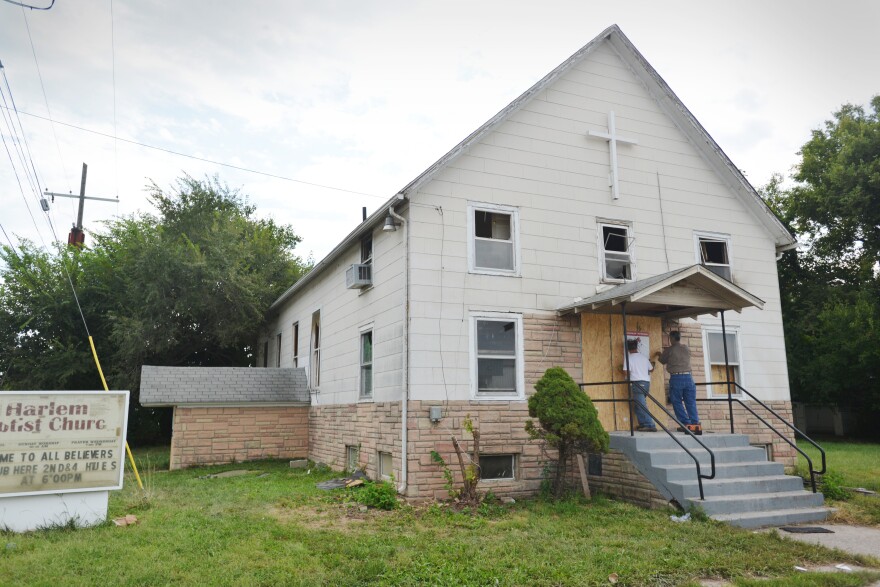The historic Harlem Baptist Church, the last relic of a once-thriving river town, is set to be torn down.
Jason Withington, one of the church’s trustees, said they made the decision this week to raze the 115-year-old building. A September 2021 fire gutted the church and the cost of restoring it could reach $500,000, he said.
Withington, who was baptized at the church, said the building’s fate made him sad because the church is the last relic of the old town that sits on the northern bank of the Missouri River. He called it a “painful decision.”
“People are always commenting on social media how their family grew up here, that this was the center of their childhood,” Withington said. “This was the gathering spot for people that grew up in Harlem.”

The 2021 fire was deemed arson by the Bureau of Alcohol, Tobacco and Firearms and the investigation into it continues, said John Ham, an ATF spokesman. A reward of up to $5,000 is being offered for information leading to an arrest, he said.
Harlem was once a thriving town, founded in 1822, where steamboats would land and ferries carried passengers across the river. Kansas City wouldn’t be incorporated for another three decades, and Harlem boosters love to say that “Harlem was Harlem when Kansas City was Westport.”
The first settlers to Harlem were Germans who came over from the Netherlands. They named the town after a city in the Netherlands, also the namesake of New York City's Harlem neighborhood.
Harlem started to suffer when the Hannibal Bridge opened in 1869 and made the ferries obsolete. Then major floods in 1844, 1903, 1951, and 1993 scared many residents away.
Withington, who is also a Clay County commissioner, said the building attracts people from a nearby homeless encampment and the trustees also made the decision because they were concerned about break-ins.
“We're worried that somebody could get in there and get hurt or somebody could get in there and try to burn rest of the building down,” he said. “I mean, it was deemed arson, so somebody's tried to burn it down once.”
Copyright 2023 KCUR 89.3. To see more, visit KCUR 89.3. 9(MDAxODQ2NTcwMDEyMTczNTUzNDMzODFkZQ004))



